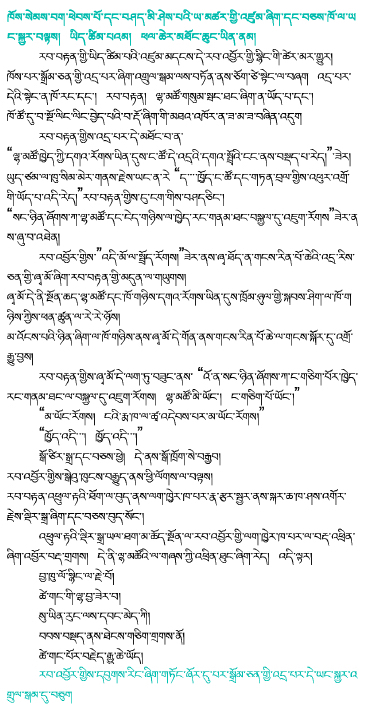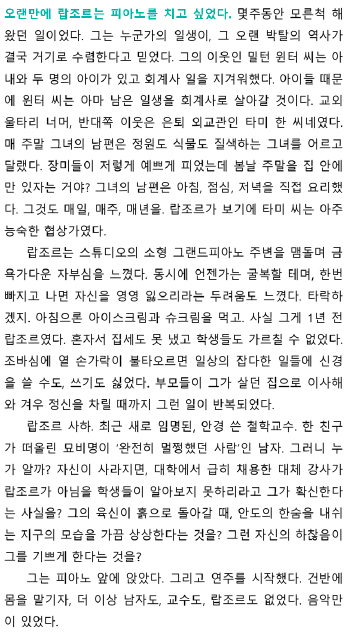I can’t think of a better way to celebrate this issue’s theme, Flight, than with a multilingual Exquisite Corpse. This isn’t some kind of morbid tale, despite what the name might suggest. It’s a game. The players: four writers and their translators. Here’s how they played. We picked a sentence from Ursula K. Le Guin’s Changing Planes and sent it to the first player. She used it to pen the first page of a story, which she wrote in her native language. Her translator translated the piece into English. We sent just the final sentences of that author’s contribution to the next player, and so on. The result: a story written in multiple languages and from far-flung places. So, with each turn of the page, you are, in a way, flying. I’m grateful to have had the opportunity to collaborate once again with Jessie Chaffee from Words Without Borders on a truly Exquisite Corpse.
—Celia Johnson, Creative Director of SLICE
Words Without Borders was thrilled to partner again with Celia Johnson from SLICE on a round-the-world story told in five languages—Spanish, Tibetan, Japanese, Korean, and English. As an organization committed to breaking down borders by bringing international literature into English, WWB is excited and deeply gratified to see these writers and translators—each a brilliant talent in his or her own right—working together to create a rich narrative chorus that could not exist without this multiplicity of voices. If this story of “flight” leaves you hungry for more great work in translation, we invite you to read on in the pages of Words Without Borders.
—Jessie Chaffee, Editor WWB Daily, Words Without Borders
Prompt line:
“In the airport, luggage-laden people rush hither and yon through endless corridors, like souls to each of whom the devil has furnished a different, inaccurate map of the escape route from hell.”
—Ursula K. Le Guin
Flight: An International Exquisite Corpse (English Translation)
Part 1
By Claudia Salazar Jiménez
Translated from the Spanish by Elizabeth Bryer
Airplanes make him panic. They terrify him. His whole body trembles with the idea of stepping inside that box in which he loses all sense of free will. He could piss himself in fear. But he’s not about to tell them so. He tries to hold tight to the bit of pride he has left. Like a criminal, though he knows very well he’s not, that he just tried gambling on his life to make a new one for himself. They’ve given him a small case, scraps of the life he’s leaving. A case in which his wife and kids don’t fit. Or any of his stories, accumulated over so many years. Or the furniture they bought for the house they rent, the car they drive to work. He’s dying to pack them all inside and take them with him, but he can’t, they have to remain behind. He will go back, on a flight he doesn’t want to take. While life here can be hellish at times, he knows that back there, life was a monstrous multiplication of wrongs. That’s why he left.
He sees people rushing, loaded with bags. Entire families going on vacation, a jostle of cries, adrenaline, happiness, curiosity. Others make their way calmly, with the bored air of knowing every step on the way through security, taking off shoes, pulling laptops out of bags, not leaving any coins in pockets, a low-level striptease. He doesn’t fit in with one group or the other but has no time or desire to feel special. He keeps his head bowed as a security officer looks him over disdainfully, as if wanting to detain him. Another looks at him in relief with a strange smile that he can’t interpret. Satisfaction? More disdain, perhaps?
Part 2
By Pema Bhum
Translated from the Tibetan by Tenzin Dickie
Another looks at him in relief with a strange smile that he can’t interpret. Satisfaction? More disdain, perhaps?
Rabten’s self-satisfied smile pricked like a thorn in Rabjor’s heart. He took out a framed photo from his suitcase and put it on the table. In the photo, Rabjor, Rabten, and Lhatso were in a pasture. They sat around a makeshift hearth of stones from which rose rings of blue smoke. They were eating.
Seeing the photo, Rabten said, “When Lhatso was with you, we used to have such good times together.” There was a silence. He spoke again, “Now . . . you are leaving us and going away forever.” His voice sounded choked up. “Just let us drop you at the airport tomorrow.”
Rabjor said, “Can you give this to her?” flinging a cap in front of Rabten. The cap had a drawing of the peak of Mt. Kailash. Back when Lhatso was with Rabjor they had each bought a cap for the other on a trip to the market. One day they would go on their pilgrimage to Mt. Kailash and wear these caps on the journey.
Rabten said, the cap in his hand, “Then let me come alone tomorrow morning to drop you off. Lhatso won’t come, just me.”
“Don’t. Don’t come to rub salt on my wound.”
“You . . . you . . .”
Rabten opened the creaking door and slammed it behind him. Rabjor looked outside through the window. Rabten got on his motorbike with his phone held to his ear and then rode off with a roar.
The dying roar of the motorbike had not quite faded away when Rabjor’s phone buzzed with a text. It was from Lhatso—the lyrics to a love song.
Beautiful cuckoo bird
Sacred bird, my good fortune of a lifetime
Whoever you are, we are not fated
Alighting on a branch you sang once
And all my life I’ll hear your song
With a deep sigh, Rabjor put the framed photo back into his suitcase.
Part 3
By Kanako Nishi
Translated from the Japanese by Allison Markin Powell
With a deep sigh, Rabjor put the framed photo back into his suitcase.
He thought about people who spent their entire lives never leaving the place where they were born. Could he live a life like that? The question floated in the air without landing. It was too late—Rabjor had already found out about other places.
It was more difficult for him to “unknow” things he had found out about than to wonder about the “unknown.” (For instance, now that Rabjor had experienced sex, he yearned for it in a completely different way from before—such a ravenous lust!)
Modern-day life was inundated with meddlesome systems. Facebook and Instagram gave anyone access to anywhere, and this must be how people who had actually been to these places felt about it.
“Look—it’s just like the scene in the photo that Justine posted to Instagram!”
“Let’s take one from the same angle!”
There was nothing new left to experience. (Who was it that had developed virtual reality?)
But still.
There was just one thing left, Rabjor thought to himself.
Death.
Framed photographs made him think of the deceased. They always had. He wondered why people put up framed photos of family members who had passed away, like an array of slightly funereal portraits on top of the grand piano—it seemed so inauspicious to him.
In any case, sooner or later all of us would end up in one of those frames—that is to say, we die without ever meeting anyone who has been dead!
He wondered when he would confront this fresh experience, one that was entirely new. For the first time in a while, Rabjor felt like playing the piano.
Part 4
By Krys Lee
Translated from English into Korean by Kang Daehoon
For the first time in a while, Rabjor felt like playing the piano. For weeks, he denied himself. He believed that this was what anyone’s life amounted to: a history of deprivation. His neighbor Milton Winther had two children, a wife, and an accounting job he hated. To support those very two children, he would probably be an accountant for the rest of his life. On the other side of the suburban fence was Tammy Han, a retired diplomat allergic to the garden and grass that her husband cajoled into good behavior every weekend. The exchange for those hybrid rosebushes and virtual imprisonment on spring weekends? Her husband did all the cooking: breakfast, lunch, dinner. Every day, every week, all year long. Rabjor considered Tammy the more skillful negotiator.
Rabjor felt an ascetic’s pride as he circled the studio’s baby grand, and also fear: he was certain that he would give in, and that once he gave in to what he wanted, he would lose himself forever. Become depraved. Eat ice cream and cream puffs for breakfast. For that was Rabjor a year ago, unable to pay his bills or teach his classes. A man unable—or unwilling—to pay attention to sundry details as his fingers flamed with impatience, until his parents moved in and forced him back to reason.
Rabjor Saha, a spectacled, newly minted philosophy professor. Utterly reasonable, a friend once said, conjuring up Rabjor’s epitaph. So how could Rabjor share his conviction that if he disappeared, his students would not notice that the adjunct hastily hired to fill out the term was not actually Rabjor? That sometimes he imagined the planet sighing in relief as his body turned into mulch? That this insignificance pleased him?
He sat down. He began to play. He fell into the keys, no longer a man, a professor, no longer Rabjor, no longer anything but music.
Flight: An International Exquisite Corpse (Original Language)
Part 1
By Claudia Salazar Jiménez
Le dan pánico los aviones. Le aterran. Le hace temblar todo el cuerpo la pura idea de enraizarse en uno de ellos, como en una caja donde pierde toda su voluntad. Se quiere orinar de puro miedo. Pero no se los va a decir. Trata de mantener el rastro de orgullo que le queda. Como si fuera un criminal, pero sabe bien que no lo es, que apenas intentó jugarse la vida para crearse una nueva. Le han dado apenas una maleta pequeña, rastros de una vida que deja. Una maleta donde no caben ni su esposa ni sus hijos. Ni todas sus historias acumuladas en tantos años. Ni los muebles que compraron para la casa que alquilan, ni el carro que utilizan para ir a trabajar. Muere de ganas de meterlos a todos y llevárselos, pero no puede, tienen que quedarse. Él se irá, de regreso en un vuelo que no quiere tomar. Si aquí la vida podía ser un infierno a veces, él sabe que la vida allá era una multiplicación monstruosa del mal. Por eso se había ido.
Ve mucha gente corriendo, cargada de maletas. Familias completas yéndose de vacaciones, toda una colección de gritos, adrenalina, alegría, curiosidad. Otros van más tranquilos, con cierto aire aburrido, de conocer ya cada detalle de pasar por la seguridad, quitarse los zapatos, sacar las computadoras de las mochilas, no dejar ninguna moneda en los bolsillos, un ligero striptease. Él no es ni de los unos, ni de los otros, pero no tiene tiempo ni ganas para sentirse especial. Mantiene la cabeza agachada, mientras uno de los oficiales todavía lo sujeta y lo mira con mucho desdén, como si quisiera retenerlo. Otro lo mira con alivio y una sonrisa extraña que no puede interpretar. ¿Satisfacción? ¿Más desdén acaso?
Part 2
By Pema Bhum

Part 3
By Kanako Nishi

Part 4
Kang Daehoon’s Korean translation of Krys Lee’s English text













